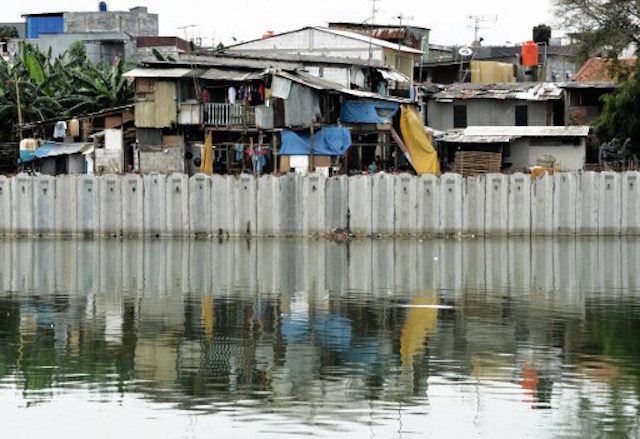SUMMARY
This is AI generated summarization, which may have errors. For context, always refer to the full article.

“The new governor should use good analysis, good data. The latest theories, concepts, paradigms are now all available.”
She also said it was important to use technology not just to build the city but to make the process of planning “more open and more transparent.”
“We are now in the era of big data, so we as citizens are equipped to participate. We must be aware if any big developments are coming up. We must know beforehand and debate about that.”
The issue of spatial planning however, has been a long-running problem peppered with a lot of flaws, hence requiring huge reform – and an effective leader.
Problems
“I think the problem started when we planned the city. The city government didn’t plan it well. They don’t include the people when they do it. If you want to make a good plan, you have to include the people who are affected to be part of the plan,” she said.
But this sheds light on yet another issue: many citizens are not aware of spatial planning or its importance.
Sutanudjaja pointed to a survey in 2010, which found that 89% of the respondents were not aware of the spatial planning process, and thus were unable to participate. “They didn’t know the city government was doing the planning at the time,” she said.
Another recent survey just last week revealed that 77-82% “are not aware of the zoning law or ever saw the zoning law itself.”
“They don’t know where their house is whether they are in the correct zoning or not. For example, if they are going to be evicted in the next month because of zoning law, they are not aware of that,” she said.
Poor data
But Sutanudjaja said it’s not all about awareness and citizen participation. She said the government itself does not have accurate data, thus basing it’s plans on wrong information.
“They don’t have a good analysis of what is the current situation. Based on population growth, the census of Jakarta is declining. There is no rapid growth in population because of land prices getting higher, and after graduation, the youth cannot afford to live in Jakarta so they prefer to leave and commute,” she said.
“Yet in spatial planning law, they predict to have more people in the city, but the actual situation is they leave and commute.”
She said many have chosen to live in cities outside the city center.
“These cities are all connected to the toll road and not public transportation. That’s why it’s jam-packed every day,” she said. “These cities have been there for almost 30 years but they don’t have a good public transportation to connect to the city.”
She also slammed the way Jakarta separates spatial and transportation planning when they should be done together.
“The current trend outside Indonesia is that both are included as one package. You have to move between these spaces, and you cannot make a different plan. You have to integrate.”
The ideal candidate
With spatial planning playing a huge role in the quality of life of almost 10 million Jakartans, Sutanudjaja said the ideal candidate must take the problem seriously, and have a clear strategy.
“[The ideal candidate] has to promise to do spatial planning in a participatory way, in a collaborative way, and ensure maximum participation process,” she said.
“He must also ensure they are using advanced technology, along with debates with the people. He needs to have a moratorium, to stop permits. We have to make a much better plan than what we have now.”
She added that the ongoing land reclamation in Jakarta, which is estimated to have evicted 100,000 fishermen and those living in coastal communities, should be halted.
Incumbent governor Purnama initiated the controversial land reclamation project, which involves the construction of 17 manmade islands, to solve the problem of subsidence, or the sinking of the city – a problem Jakarta faces. But experts said the new islands, the construction of which affects fishermen but benefits developers, will not solve the subsidence problem.
“Stopping the reclamation would be good too,” said Sutanudjaja. “They have to promise to review it, although I prefer to stop it altogether.” – Rappler.com
Add a comment
How does this make you feel?
There are no comments yet. Add your comment to start the conversation.